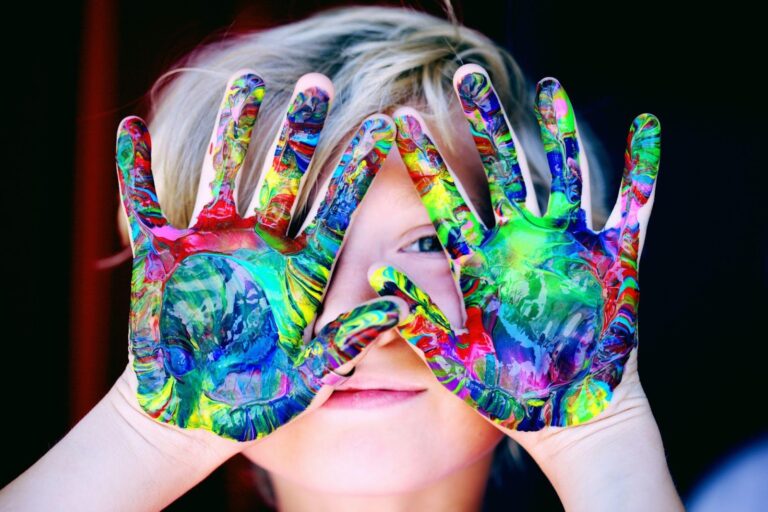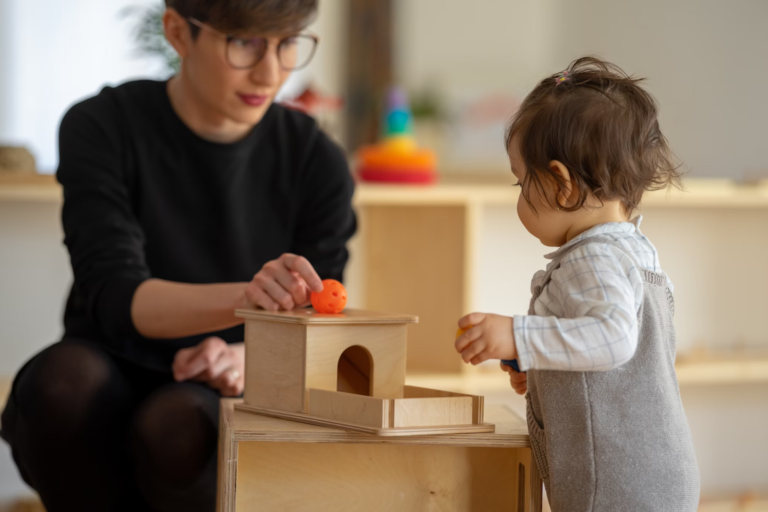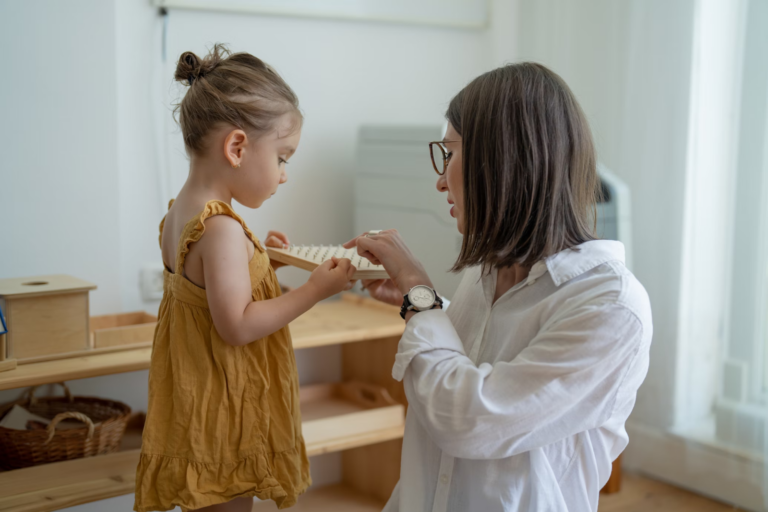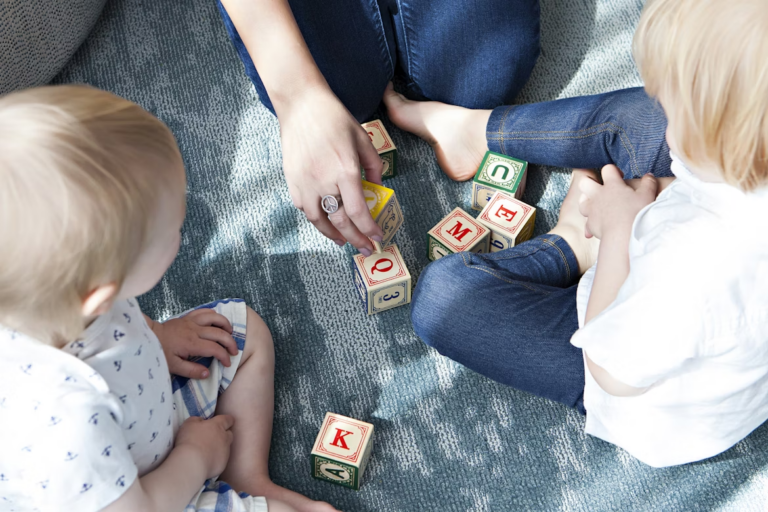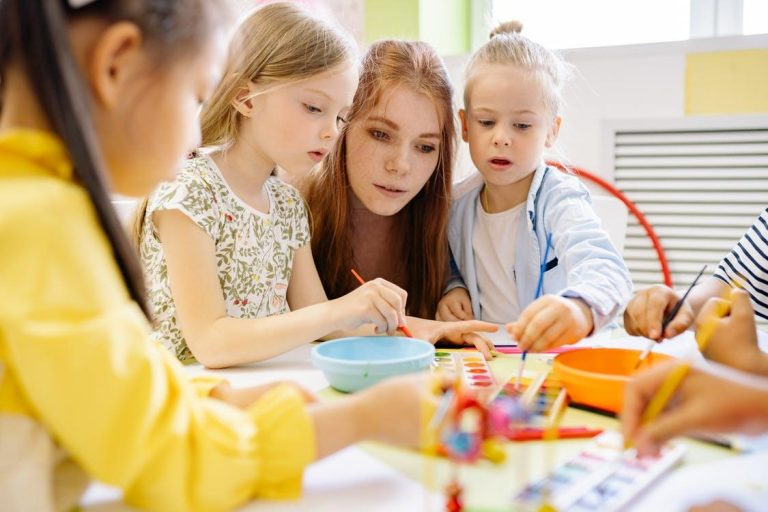5 Ways Montessori Education Can Help Your Preschooler – For Parents and Teachers
“Imagination does not become great until human beings, given the courage and the strength, use it to create.” – Maria Montessori
In the Montessori classroom, children become scientists, engineers, archaeologists, business owners, explorers, thinkers, and their usual playful selves while learning!
And with teachers who have gained the knowledge and skills through a Montessori course in Canada, learning becomes fun because they also prepare the Montessori classroom with only the learning materials that support the child’s development.
Through the Montessori Method of learning, parents and teachers can enhance children education through hands-on learning and self-directed activities, allowing them to explore the depths of their imagination and creativity.
Children can become their best versions because this approach develops their life-long skills, independence, and camaraderie among other preschoolers. And as they make their choices, they become more analytical and creative thinkers.
Especially with teachers who took up Montessori teacher training Calgary, they know how to apply the Montessori Method; thus, they become more effective educators, who serve as guides and offer age-appropriate activities for preschoolers.
Now, if you’re asking, “How can the Montessori education help your preschooler?”We’ve prepared this post for both parents and teachers looking to take up Montessori education training and still thinking if learning the Montessori way can make them more effective teachers. Keep reading.
How did the Montessori Method Develop?
Maria Montessori, a physician and educator, developed the Montessori education. It’s one of her plentiful of ideas realized while dealing with children and low income families in Rome.
Casa dei Bambini was her first school, which was meant to help children of working class families.
She had a different take on learning, which teachers would also learn from a Montessori teacher training course. Her system emphasized on freedom within limits, independence, and respect for the child’s holistic development – social and psychological included.
Her principles, which still inspire modern educators globally, revolve around fostering independence but with limits and individually paced learning. Her method encourages joy in lifelong learning, empathy, and love for social justice.
5 Ways Montessori Education Can Help Your Preschooler for Parents and Teachers
Given support to probe, explore, and ask questions, while making connections with other children, preschoolers grow up being self-directed learners, who are enthusiastic and confident. They speak their mind, work cooperatively, and think creatively and critically. Here’s how all these become possible.
Montessori Is Child-Centered and Encourages Self-Directed Learning
The teacher-guided classroom and student-centered setup is what makes the Montessori system a unique approach to education. The classroom becomes a learning environment where the students have the freedom to choose from a wide range of especially designed and developed activities and learning materials.
Teachers who have Montessori training qualifications are guides who facilitate the students’ learning experience, while ensuring that children follow the ground rules – to develop their self-discipline and sense of order. They also encourage preschoolers to work creatively and independently.
In short, the children themselves learn and develop at their pace. They direct their learning, allowing them to learn in the most enjoyable manner that suits them while maintaining respect for other students. As they have freedom within limits, children also develop more enthusiasm in learning and develop a positive self-esteem. In the process, they also become more independent and self-disciplined.
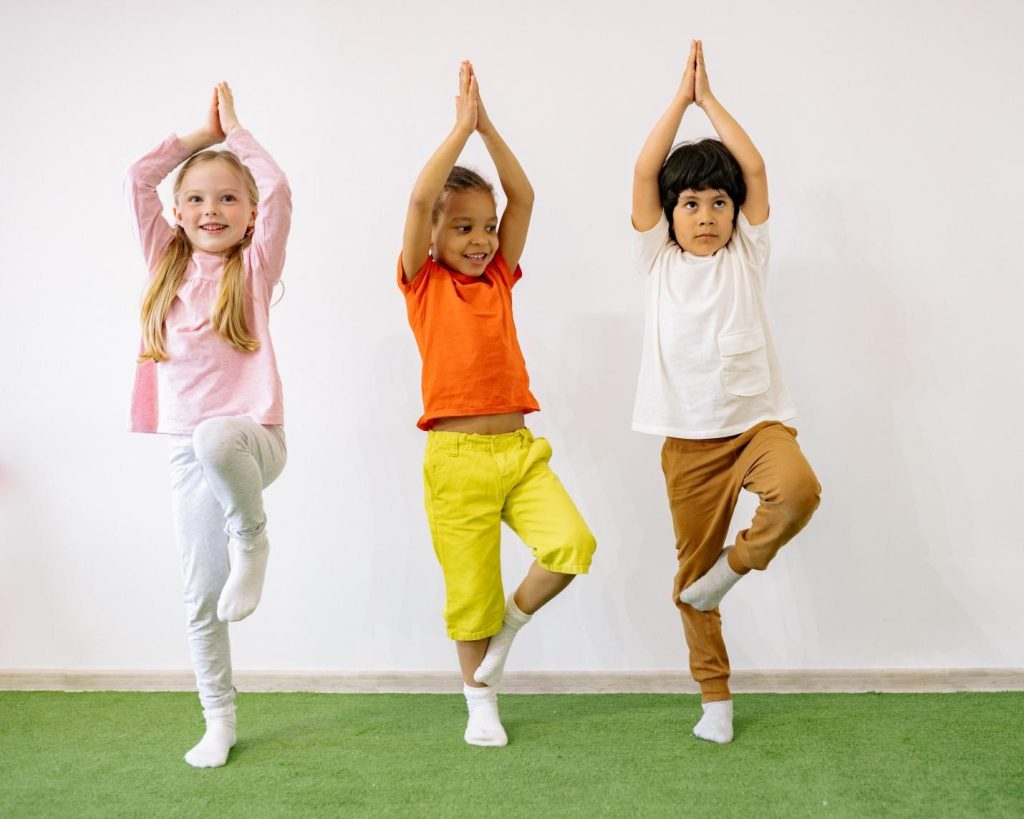
It Develops Discipline & Self-Esteem among Learners
The Montessori approach to learning also includes self-assessment and self-correction, encouraging them to examine and look at their work and correct their mistakes. It is not just to recognize any of the errors they commit but also to learn a lesson from those.
The Montessori system also allows and gives children the right and freedom to probe and question, while remaining respectful to their teachers and classmates. In the process, children develop confidence and become more motivated to learn.
It is through the freedom within limits that self-discipline and motivation develop among learners. Through the opportunities being presented to them while allowing them to do things on their own, they develop a higher self-regard, self-reliance, and independence.
It Teaches Learning for Life
A research published in the journal “Science” (2006) by US psychologists revealed that Montessori students were more socially adjusted and creative. They were also more adaptive to both complex problems and changes. All these are predictors of future success in both life and school.
The same research also discovered that 5-year old students who attended Montessori learned math and reading better. Meanwhile, 12-year old students wrote more creative essays with elegant sentence structures and read better.
According to the study, students also showed inclination and sense of fairness and justice, while also interacting empathetically and emotionally positive. During break times, students were also disciplined not to engage in rough play.
Students who attended Montessori were equipped with better academic and social skills. But to achieve it, teachers must be knowledgeable and skilled in teaching using the Montessori approach and implementing the learning strategies as introduced and taught by Dr. Montessori herself.
For this reason, it is a must that teachers planning to become Montessori preschool teachers take up a suitable Montessori teacher training Canada to prepare them for the Montessori Method and become an effective educator.
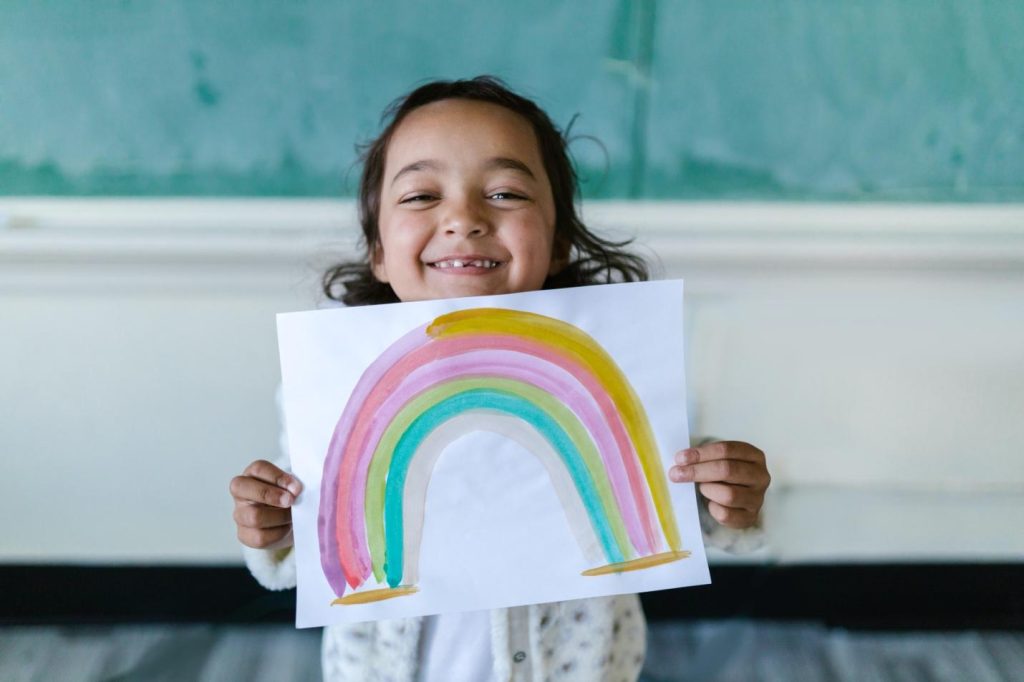
It Aids In Primary Developmental Stages
Montessori system offers a unique approach to children’s education especially during the all-important developmental stages.
The approach is a systematic education method, which was designed and built for every child. It’s focused on the primary developmental stages in children.
In every stage, Dr. Montessori recognized that children undergo a very sensitive period as they start learning new skills and engage in new activities. She knew that these activities will help children reach their next developmental milestone as they progress and become better learners.
She believed that preschoolers would progress excellently if they’d be given enough opportunities to explore, learn, and practice these skills.
Teachers who have been trained with Montessori course material embrace the same principles. They believe that every child has their pace of development and needs; thus, the Montessori Method has been built and designed for a learner’s self-paced learning and development.
This is the way to maximize their full potential. Being self-directed learners, they find learning fun and enjoyable unlike in teacher-directed traditional education methods.
The Montessori system is a holistic approach – learning materials, classroom structure and arrangement, curriculum – are carefully designed, tested, evaluated, and refined. And the Montessori approach is not implemented only in one country but across the globe, cultures, and age groups.
In 110 countries worldwide, the total number of Montessori schools is more than 20,000. More than five hundred are in the United States and more than 500 Montessori schools are in Canada.
ItDevelops the Student’s Cooperation, Interaction, and Social Skills
Teachers who undergone Montessori training Canada recognize that one of the primary goals of the Montessori approach is to develop the child’s social skills. In the classroom, they ask children to collaborate, interact, and help each other in their group.
This method encourages children to cooperate with each other.
Preschoolers are taught the value of collaboration not competition. In the classroom, a child also has the freedom to play and work with his chosen learning material or toy. They concentrate and enjoy the activity and other children do their own, too.
The children do not take the material (i.e. toy) chosen by each of them nor insist of sharing it with others. They show respect for one another – including each other’s activity and space. Each child understands that they’ll be able to play with the same toy later.
They also return their learning material to their place and good condition once done with their activity.
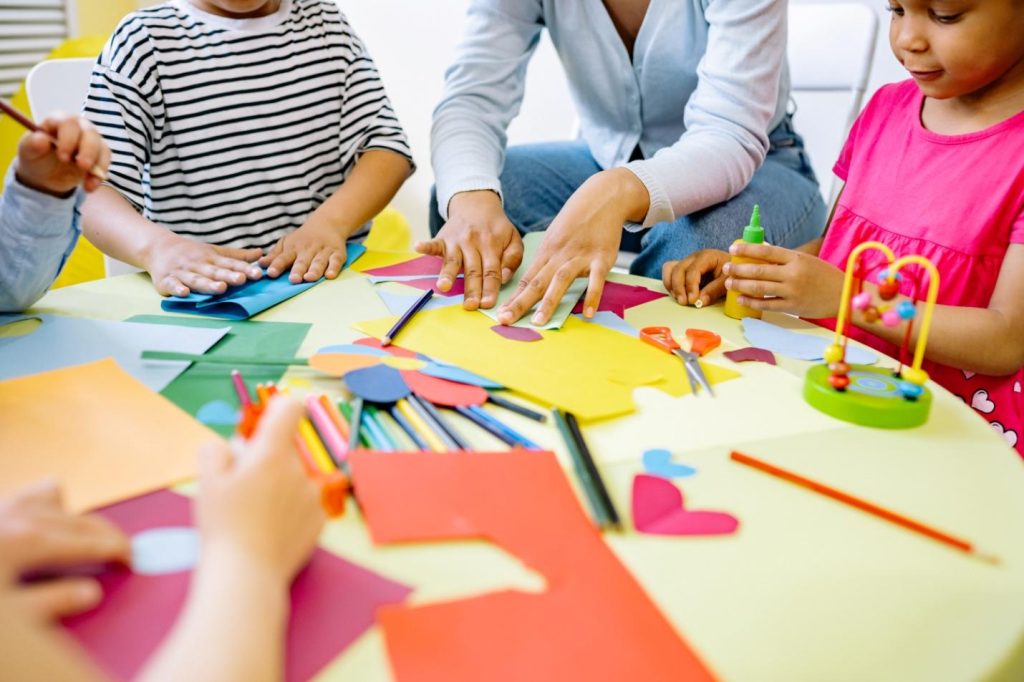
This kind of setup in the classroom develops the social skills, collaboration, and cooperation. They also develop respect for each other and patience, values that can make them better adults.
Most importantly, it also helps children develop order in their brain. The order of the activity beginning at the shelf and ending at the shelf (after clean up). Who would have thought a 3 year old could complete such a task?
Learning how to interact peacefully with other children and being a part of the classroom community, preschoolers develop their sense of belongingness to a place where they can progress and make deep connections with their fellow students. They become happy, joyful, and respectful learners, who can grow into responsible adults.
Students also learn practicing and eventually mastering different household skills. They can use child-size furniture, brooms and dustpans, rags, and accessible sinks, teaching them the value and skills of independence at home or in the classroom. In this way, they also develop a sense of organization early in life as well as respect for cleanliness, a communal environment, and order.
There you have the “5 Ways Montessori Education Can Help Your Preschooler – For Parents, Teachers and Caregivers.” Hope you were inspired by this post that shares the five interesting ways that the Montessori approach develops a happier, more confident, and more independent preschooler.
Parents and caregivers looking to encourage and develop their children’s lifelong skills, self-esteem, and social skills may wish to consider a Montessori school for their preschool. Alternatively, you may wish to take an Introduction or Foundations in Montessori Course which you will find very beneficial.
For teachers who want to learn the fundamentals and foundations of the system, they must equip themselves with Montessori course qualification.
INTERESTED TO BECOME A MONTESSORI TEACHER? CONTACT US TODAY! Sign up here!


